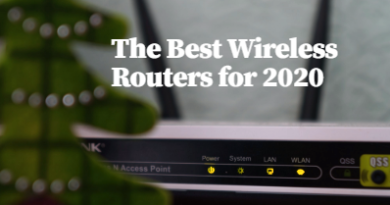5 Tips for Data Security in EHR (Electronic Health Records)
Healthcare is important and considered a basic necessity of life. However, healthcare alongside all other sectors has been hit by the technology revolution and has changed for good.
Technology and Healthcare Revolution
Technology intervention in healthcare has been significantly important and offers many benefits in general. From medical wearable technology to hospital management systems, there are different ways in which technology is bringing change in healthcare. This change is huge and we knowingly or unknowingly are adopting it.
What we are doing now seems unimaginable a few years back. I was booking an online consultation for my mother yesterday and was wondering how far we have already come. Not long queues and visiting the physician in person and I am consulting the best physician for her irrespective of all the geographical boundaries.
Electronic Health Records in Healthcare
A part of this change that inspires me the most is Electronic Health Records that are digital patient records. These have been a quick fix against conventional data-keeping. Now there is no need to keep patients’ files in huge file rooms and search in the file piles upon requirement. All the data of millions of patients are just at one click and are quite secure.
No matter if the patient visited you months or years ago, you can get access to this data in just a few seconds. Not only this but the data is quite helpful and gives you a detailed overview of a patient’s medical history in one view. This offers the benefit of improved patient care in times of emergency.
How to Ensure Data Security in Healthcare?
However, whenever it comes to the data in healthcare, there are always questions regarding data security in healthcare. These systems put your data online available that raises safety concerns and if you are concerned about data security, you are not wrong. Here are some of the ways that can help to keep your organization’s data protected in electronic health records.
1- Choose the right service providers
You should be mindful that having a facility is not important but having the right facility is more important. Whenever choosing your partners for EHR make sure to do proper research. Check the credentials and market reputation of service providers to make an informed decision. Further, it is important to figure out our requirements properly and choose the one that best matches your requirements.
2- Regular risk assessment
No matter how secure you think your healthcare data is, it’s essentially important to perform a regular risk assessment. There are chances of your data being data due to many reasons. Be it a loophole in the data security assurance or any other causes, your data is susceptible to being hacked. To minimize this risk you need to evaluate the risks of data breaches via regular assessments.
3- Change credentials from time to time
It isn’t important how restrictedly available your data is, there is always a need to keep an eye on activities. For all these reasons, you need to keep an eye on the credentials. Even if there are three people running data systems, make sure to change your passwords from time to time. Keeping one password for a long time makes your data an easy target for hackers. So, be sure to change it every two to three months.
4- Got software updated
Software updates are quite common and we might think of these as unnecessary but these are important for the protection of your data in healthcare. No matter how long you are using software, keep an eye on the software upgrade. If your software isn’t updated from time to time it might lag in having important features. One such feature you should be concerned about is the security of your healthcare data and that’s where software updates become important.
5- Make policies
Policies are important whenever it comes to the security of data in healthcare. Ensure that you have the right protocols regarding access and control over this data. Alongside having the right protocols it is also important to get them followed by the people working. This is completely up to you and your organization and you can work on it well.
Bottom Line!
Electronic health records are quite important and offer many benefits. However, you need to follow the right practices to protect your data in healthcare and prevent data breaches.



